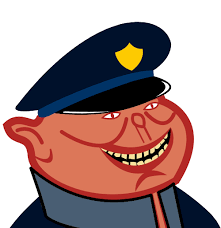Paul Treanor was right.
[Propertarians] say [that] they favour political freedom. But even to simply enforce the outcome of the market, the apparatus of a state would be necessary — an army to prevent invasions, a police force to suppress internal revolt, a judicial system. Most [propertarians] go much further: they want a [propertarian] régime. Some of them have written complete and detailed constitutions. But like any state, a [propertarian] state will have to enforce its constitution — otherwise it will be no more than a suggested constitution.
Even if the state is founded on the planet Mars (as some [propertarians] suggest), someone else with different ideas will probably arrive sometime. The [propertarian] constitutions might work in a freshly established [propertarian] colony, inhabited only by committed [propertarians]. But sooner or later there will be an opposition, perhaps resolutely hostile to the founding principles. States, which fail to enforce their own political system against opposition to the state itself, ultimately collapse or disappear. If [propertarian] states want to survive in such circumstances, they will use political repression against their internal opponents.
In the case of [propertarianism] within existing states, the position is much clearer. There is no question of a fresh start with a fresh population. The [so‐called] Libertarian Party of the United States, for instance, seeks to impose [propertarianism] on the United States. It is an imposition, and can not be anything else. Unless they are prepared to accept the division of the country, they will have to deal with millions of anti‐[propertarians], who reject the régime entirely. They might call the riot police the Liberty Police, they might call the prisons Liberty Camps, but it’s still not ‘political freedom’.
(Source.)
(Spotted here.)

